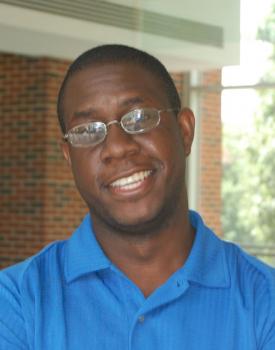
Stefan France is an Associate Professor in the School of Chemistry and Biochemistry. Professor France earned his B.S. in Chemistry (2000) from Duke University and a M.A. (2003) and Ph.D. (2005) in Organic Chemistry from Johns Hopkins University. His research group focuses on experimental methodology development, natural product synthesis, and medicinal chemistry. Owing to Prof. France's avid interest in undergraduate research, his research group has mentored and trained more than 60 undergraduates (both Georgia Tech and non-Georgia Tech students). Professor France has been the recipient of several awards for his research, mentorship, and teaching including: the 2018 Georgia Tech-Georgia Power Professor of Excellence; the 2015 Georgia Tech Senior Faculty Outstanding Undergraduate Mentor Award; the 2014 Georgia Tech Faculty Award for Academic Outreach; the 2014 Georgia Tech Hesberg Teaching Award; the 2013 Georgia Tech Sigma Xi Young Faculty Award; the 2012 National Organization for the Professional Advancement for Black Chemists and Chemical Engineers (NOBCChE) Lloyd N. Ferguson Young Scientist Award; and the 2011 National Science Foundation (NSF) CAREER Award. He heads the Chemistry FAST Program, a NSF Research Experiences for Undergraduates (REU) Site, and also serves as Chair of the NSF Chemistry REU Leadership Group.
Our group is interested in the design of efficient methodologies to accomplish the formation of carbon-carbon and carbon-heteroatom bonds with the intent to apply the methodology toward the synthesis of complex natural and unnatural targets. Natural Product Synthesis. Approaches to natural products not only inspire the development of new synthetic strategies, but often unveil unexpected and often interesting reactivity. Targets are chosen for their interesting biological activity along with their sheer complexity. We are interested in exploring both modular and convergent approaches to complex targets that enable facile derivatization for the development of combinatorial libraries. Medicinal Chemistry. Medicinal or pharmaceutical chemistry lies at the intersection of chemistry and pharmacy. Our group is interested in the design, synthesis and development of pharmaceutical drugs, or other chemical entities suitable for therapeutic use. We are further interested in the study of their biological properties and their quantitative structure-activity relationships (QSAR). Given that medicinal chemistry is a highly interdisciplinary science, we aim to establish several collaborations with biologists, biochemists, and computational chemists to facilitate the design and development process. In particular, we aim to develop therapeutics toward the treatment of various forms of cancer, HIV, diabetes, and neurological disorders, such as Alzheimer's and Parkinson's disease.





